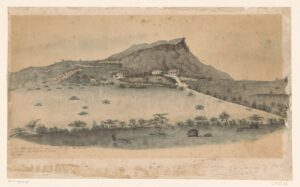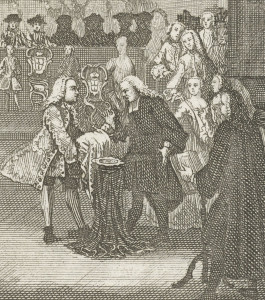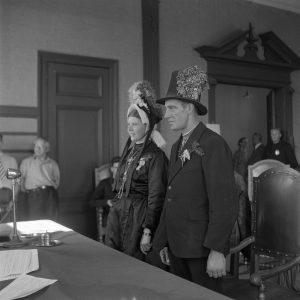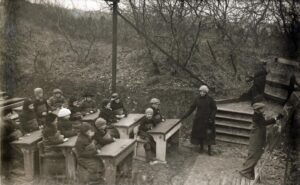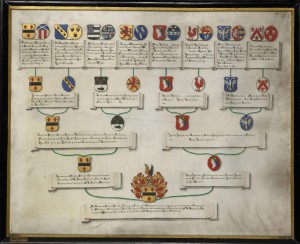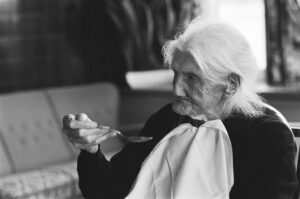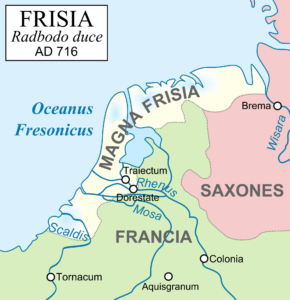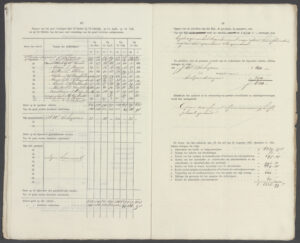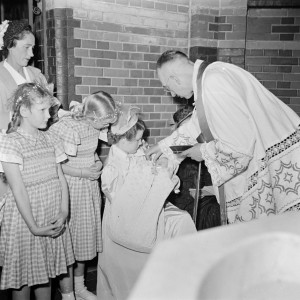The slave registers of Curacao (1839-1863) and the emancipation registers of Curacao (1863) are now available via the website of the National Archives of Curacao and National Archives of the Netherlands. … [Read more...]
Dutch term – Dominee
A dominee is a minister, a protestant clergyman. The word comes from the Latin dominus which means "mister" or "lord." Dominees can be found since the reformation in the 1500s. Most of the north-western parts of the Netherlands became Dutch Reformed, while many of the south-eastern parts remained Catholic. Dominees can be found in different types of protestant churches, including Dutch Reformed churches, Christian Reformed churches, Mennonite churches, Anabaptist churches, and remonstrant … [Read more...]
Dutch term – Nedersaksisch
Nedersaksisch is the Dutch word for Low Saxon, a language spoken in the north-east of the Netherlands and across the eastern border in Germany. It has different dialects, including Gronings (in Groningen), Drents (in Drenthe), Twents (east of Overijssel), and Achterhoeks (east of Gelderland). In 1998 it was recognized as an official regional language of the Netherlands, alongside Frisian and Limburgs. Most people who speak Nedersaksisch also speak standard Dutch, though sometimes with an … [Read more...]
Dutch term – Pandemie
A pandemie is a pandemic. The 1918 Spanish flu pandemic hit the Netherlands pretty hard. About 38,000 people died. The province of Drenthe had the most cases. Here is an image of children going to school outdoors, in the dead of winter in 1918. … [Read more...]
Dutch term – Mannelijke en Vrouwelijke Lijn
In Dutch, the mannelijke lijn is the male line, and the vrouwelijke lijn is the female line. Traditionally, many Dutch publications have focused on the male line only. Over the past few decades, it has become common to focus on both male and female lines, both in terms of descendants and ancestors. Most Dutch genealogists I know are researching their kwartierstaat, their ancestors in all the lines. People interested in the female line can join Mamamito, a Belgian research project that … [Read more...]
Dutch term – Gevangene
A gevangene is a prisoner. Imprisonment as punishment became popular in the 1800s, after corporal punishment was largely abolished. For information about prisoners, see Source - Prison records. … [Read more...]
Dutch term – Inwoner and bewoner
An inwoner is a resident of a location. For example, someone could be an inwoner of Amsterdam, or of the Netherlands. The word does not imply citizenship, just residence. A bewoner is a resident of a building. For example, someone could be a bewoner of a house or nursing home. … [Read more...]
Quick Tip – West-Friesland is not in Friesland
In the early Middle Ages, the whole area between the Zwin and Weser rivers was called Frisia/Friesland. The current province of Friesland in the Netherlands is in the middle of that region, but the former area of Frisia was much larger. To this day, part of the province of Noord-Holland is known as "West-Friesland" [West Frisia] and part of northern Germany is known as "Ostfriesland" [East Frisia]. So West-Friesland is in the province of Noord-Holland, not in the province of Friesland. … [Read more...]
Dutch term – Gemeenteverslag
A gemeenteverslag is a municipal report. Since 1851, municipalities were required to write an annual report about the state of the municipality. These can be a great source of background information about your ancestors. See source: municipal report for more explanation about this source and how to use them. … [Read more...]
Dutch term – Onecht kind
An onecht kind is a child born out of wedlock. You may encounter the term in baptismal records or court records. Here are tips for finding the father of an illegitimate child. … [Read more...]
